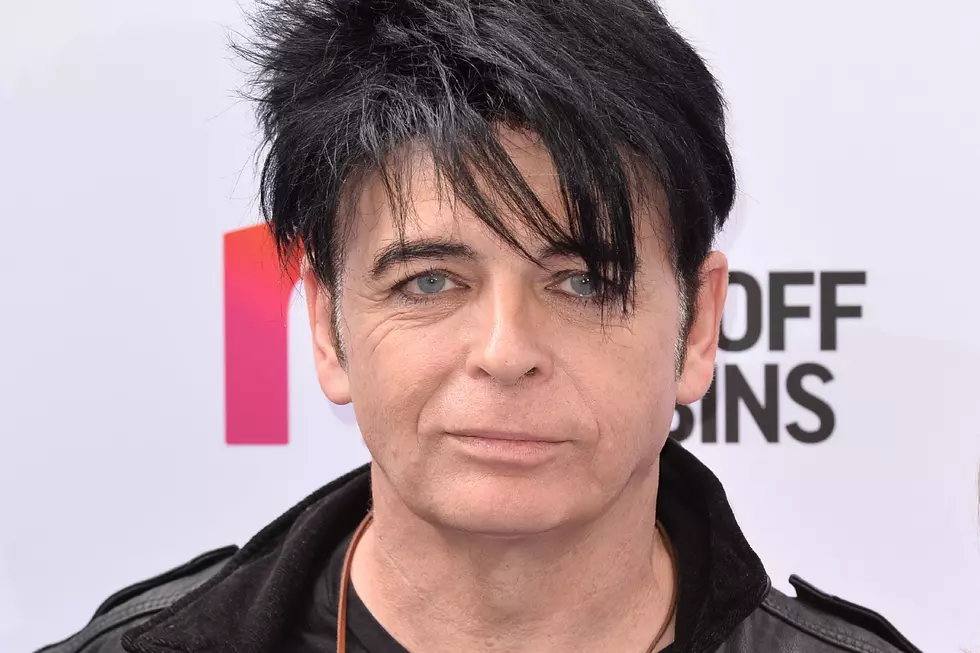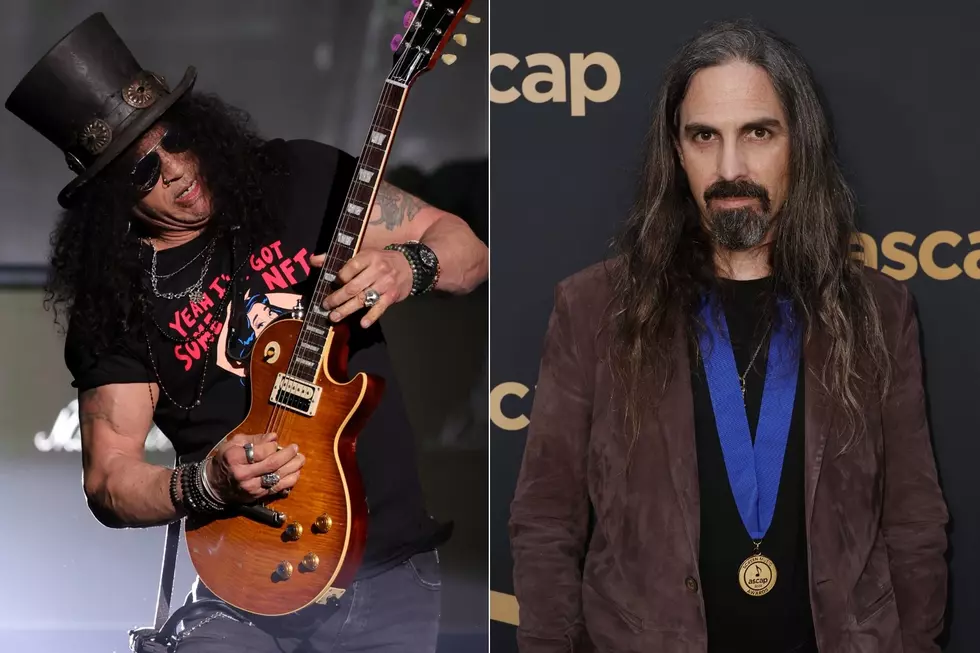
The Rise, Fall and Rise of Gary Numan
Celebrities move us with their talents and wow us with their cool personas, so it's easy to forget that they're just like the rest of us. You might say but with more money, and largely, you'd be right. But Gary Numan, best known for his 1979 futuristic smash hit "Cars," is here to remind you that's not always the case.
Numan has recently given the public access behind a touring musician's curtain by sharing the trials and tribulations of his managing his finances in a series called "The Money Diaries" by the investment service Wealth Simple. In short, he's bad at it. Really bad.
The story begins with a blunt proclamation. "I tell you, man, I've been absolutely shit with money my entire life. My entire life. Me and my wife, Gemma, even now, we're useless. We're like children. Absolute children," he says. "And I've always been like that. I've never been particularly good with being sensible — you know, putting a little bit to one side, living within your means."
In 1979, still living with his parents in the U.K., 21-year-old Numan had hit it big. He already had two No. 1 albums, Replicas and The Pleasure Principle, at home, as well as two No. 1 singles, "Are 'Friends' Electric?" and "Cars," but he was already bleeding money, too. This was despite releasing albums at a clip of almost an album a year for the next decade, many of which performed well.
The money was certainly flowing in, and his dad, who he still considered "the head of the family," was managing his finances — just until they found someone better equipped. That didn't happen, arguably, until 2010, when Numan took over his own management. His uncle estimated he earned £6 million in his first two years in the music business.
But it wasn't long before it was gone. Reinvesting in your business is usually advisable, but Numan was doing it without restraint. He was pouring all his earnings into a huge-scale tours with light shows and custom equipment. "There were no lights available in the world that did what I wanted these things to do, so we designed and made our own. I said to the guy that I wanted the set to look like a skyscraper city, where the buildings themselves would glow, because it was all part of these science fiction stories that I'd been writing," he says.
Tours were selling out, but his coffers were emptying out. His dad warned him against the expense, but he didn't care — he thought he was investing in his future but he didn't begin to pull in a profit on touring until more than 15 years later.
Of course, he was spending money on other luxuries as well. "Travelling, Concorde, first class, and all that. And I bought a lot of shit — like I say, I'm not very good with these sorts of things. Houses. Ferraris. Aeroplanes. I had three aeroplanes at one point at the same time — that's pretty stupid. I mean, it was great, but it’s ridiculous," he says.
It took nearly a decade for things to catch up with Numan, prompting some change although he admits that to this day "Overall I don't think I've learned a great deal at all about money. I'm still pretty rubbish." It was actually his then-girlfriend, now-wife, Gemma, who kept him going after they first met, buying him groceries. "She walked into this person that was absolutely broke, whose career was completely at a standstill, in a terrible state, virtually no money coming in," he says. "I had no record contract, it looked very unlikely that I'd ever get one, tours were still losing money, and the attendance was becoming embarrassing."
The experience opened his eyes, and together, he and Gemma made some changes. For a while, the couple lived on £600 a month, and gave up all their luxuries. But they also made some changes to the business model, offering fans more than just music. "Competitions. We started doing telephone information lines, where I would record these long messages on the phone, and the fans would call in, and they generated a significant amount of money. That was really helpful," he recalls. Later came more: meet-and-greets, open rehearsals and other moneymakers, but first he cut another album — 1994's Sacrifice. It was recorded at home because he couldn't afford a studio, and though it only reached No. 99 in the U.K., the result was another record deal.
"Slowly but surely we started to crawl out of this hole, and eventually we managed to pay off all of our debts, pay off the mortgage," he says. "But we got far cleverer than we had been before, with the music and with the way we interacted with the fans, and how we could lean on them to help us."
After realizing that the traditional record label model wasn't serving his needs, Numan went independent in the late '90s and he's been that way ever since. Like many artists, he found that streaming provides little revenue, but he's turned to social media and other technologies that allow him to reach out to fans directly. "Today we had 18 people come in and sit through rehearsals for a four-hour session: three hours of music and one hour of just chatting, trying out the gear, signing stuff. So you're giving fans access to something that historically they would never ever have seen or got involved in at all. But you're charging for it."
Last year, Numan released Savage (Songs From a Broken World), his 18th studio album. It was a concept album about the blending of Eastern and Western cultures in a post-apocalyptic world that has been decimated by global warming — and inspired by the current political climate. "It's about a desperate need to survive and they do awful things in order to do so, and some are haunted by what they've done," Numan said at the time of its release. "That desire to be forgiven, along with some discovered remnants of an old religious book, ultimately encourages religion to resurface, and it really goes downhill from there." The album was released via BMG and The End, but it was first announced in 2015 as part of a PledgeMusic campaign.
He also does performances where he spends an evening talking to fans about his life, and is always on the lookout for new ideas to help keep his business afloat. Licensing music for commercials. Even better if it's for an ad that runs during the Super Bowl.
But in the end, he and his wife still slip up. "What we'll do is rent a boat in Croatia and invite all of our friends and have this mega holiday for two or three weeks and then run out of money halfway through it. And then just giggle. You know: 'Ah fuck, done it again.'"
Ultimately, he sees the slip-ups as only partially about money. "I have always been optimistic, funny enough. Stupidly optimistic. About money, but about everything — things will work out."
More From Ultimate Classic Rock









